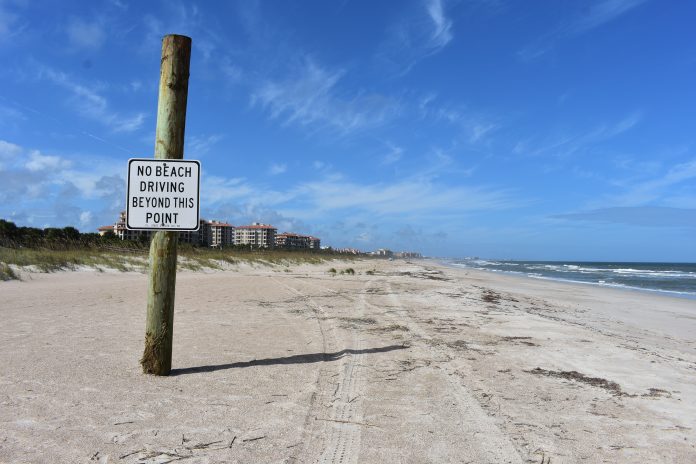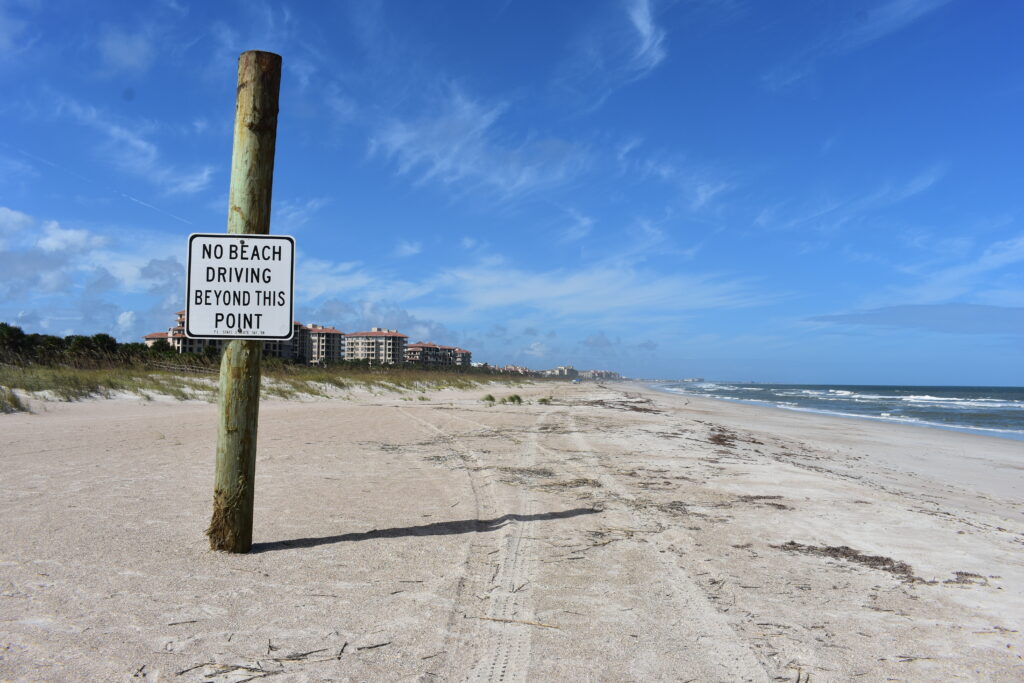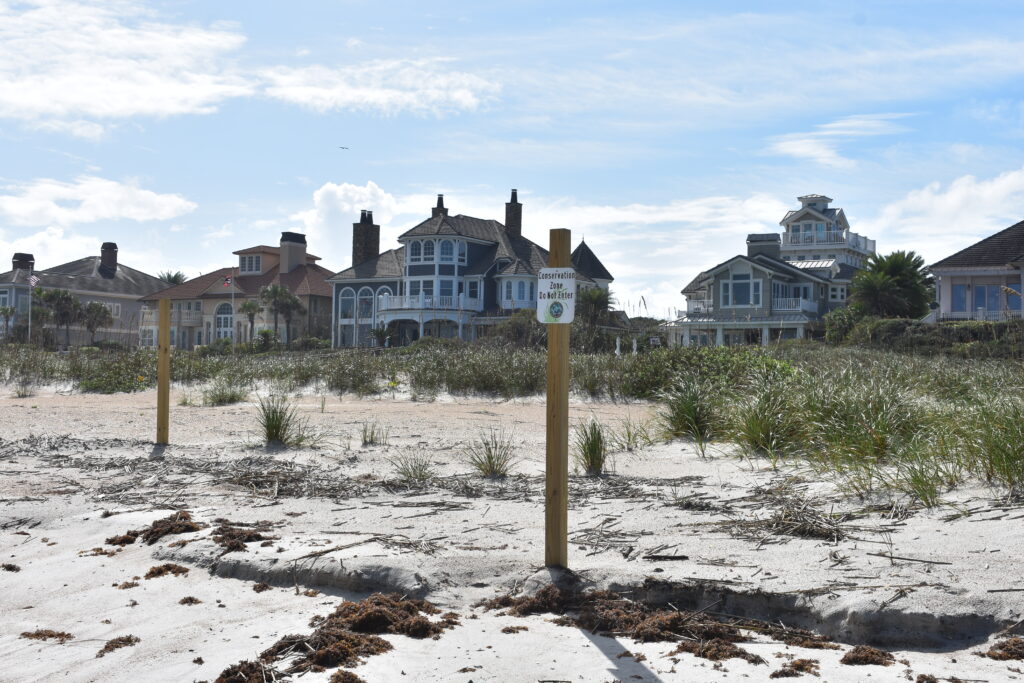
Kate Kimmel
Nassau NewsLine
Four homeowners associations on Amelia Island’s south end — representing the Retreat, the Sanctuary, the Residence and the Seaside Retreat — have filed a lawsuit against Nassau County, claiming the county violated Florida law by allowing beach driving in front of their properties.

The complaint, filed Friday in circuit court, challenges the county’s recent decision to move “no driving” signs about three-quarters of a mile north from where they had been posted for the past 21 years. Residents say that since the change, they have observed erosion, damaged sea oats and increased litter from vehicles accessing the beach near their homes.
Mark Dawkins, who spearheaded the recently resolved lawsuit between Save Historic American Beach and the County, said that the South End residents have his full support in this battle.
The lawsuit alleges that Nassau County’s reclassification of south-end neighborhoods as “undeveloped resort areas” after more than two decades of enforcing the area as off-limits to driving violates state statutes and a 1992 court judgment.
Senate Bill 1577, passed in the early 1990s, was designed to restrict beach driving in front of developed areas to protect public safety and native wildlife. At the time, the south end of the island was largely undeveloped, so the law allowed limited vehicle access there.
According to the plaintiffs, the county’s decision in 2004 to prohibit driving in front of south-end communities reflected the area’s growth and was meant to be permanent. The associations argue that their neighborhoods function as extensions of the Amelia Island Plantation resort and should be treated the same as nearby resort properties where beach driving remains prohibited.
The lawsuit points to the treatment of Summer Beach, whose residents have access to Ritz-Carlton amenities, as an example of how the county enforces resort-area restrictions inconsistently. The plaintiffs claim their own access to Amelia Island Club membership similarly aligns their communities with the resort designation.
“The fact that for many years before 2010 you could only join the club if you lived on the plantation or in one of our neighborhoods shows that we are, in some sense, an extension of the plantation and should be treated as such,” Corky Hoffman, who lives in The Sanctuary, said.

The suit seeks a declaratory judgment to determine whether the county’s actions violate state and local policy and requests an emergency temporary injunction to immediately halt beach driving along the south end.
Among its allegations, the filing states that “the efforts made in the renourishment of the public beaches adjacent to the South End Properties including the financial investments of property owners in the South End Properties are being counteracted by these careless drivers who refuse to observe Florida’s laws in preservation.”
The complaint notes that the beaches near the south-end neighborhoods have undergone four renourishment projects since 1989, many of which were paid for by local property owners. David Bowman, who lives in the residences, spearheaded and personally funded a sea oats planning project, which he claims beach driving has destroyed.
“For several years we had the most beautiful and stable beach you’ve ever seen,” Bowman said. “The work I did to strengthen the dunes in front of my house cut my flood insurance in half, and now vehicles are undoing it all.”
The plaintiffs argue that the county’s actions are “in direct opposition to Florida’s public policy and violate numerous Florida Statutes specifically intended to preserve and protect Florida’s natural resources including but not limited to Fla. Stat. §161.088, Fla. Stat. §161.053(1)(a), Fla. Stat. §161.242, Fla. Stat. §379.2291(2), and Fla. Stat. §161.163.”
The associations also claim that allowing vehicles on the beach creates safety hazards and diminishes residents’ quality of life.
“Many property owners ultimately chose to purchase property in the South End Communities exclusively because of the restriction on beach driving,” the lawsuit states. “Accordingly, the property owners in the South End Communities have lost the right of use and enjoyment of the beaches without vehicular traffic threatening their safety and destroying the natural resources into which they have invested for their preservation and protection.”
In addition to property concerns, the lawsuit accuses the county of failing to protect endangered wildlife. It cites an incident in which “a vehicle driving on the beaches adjacent to the South End Communities has already run over and killed a sea turtle.”
According to the Florida Fish and Wildlife Conservation Commission, five sea turtle species nest on Nassau County beaches — the loggerhead, green, leatherback, hawksbill and Kemp’s ridley — all of which are listed as endangered or threatened under the federal Endangered Species Act.
These claims mirror those made in the American Beach lawsuit, which failed to end beach driving entirely but did accomplish several important reforms, Dawkins said.
While some claims in this lawsuit are similar to those made by American Beach, South Enders such as Hoffman and Bowman are hoping that their ties to the Plantation and the language in Senate Bill 1577 will differentiate them and lead to a different outcome.




